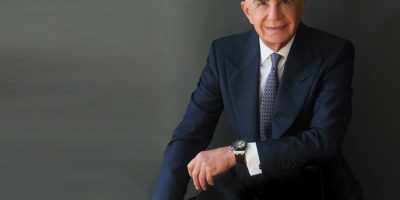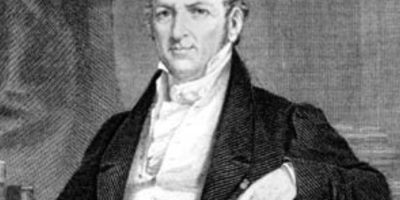Top 20 Interesting Facts about Malcolm X
Originally published by Ruth in March 2022. Updated by Charity K in May 2023. Updated by Ruth on January 2024.
Malcolm X, whose original name was Malcolm Little, was an African-American Muslim minister and human rights, activist. He was a prominent figure during the civil rights movement. He was a spokesman for the Nation of Islam until 1964, he was a vocal advocate for black empowerment and the promotion of Islam within the black community.
Malcolm articulated concepts of race pride and Black nationalism in the early 1960s. After his assassination, the widespread distribution of his life story, The Autobiography of Malcolm X published in 1965 made him an ideological hero, especially among Black youth.
Malcolm X is also a widely celebrated figure within African-American and Muslim-American communities. This was for his pursuit of racial justice. He was posthumously honoured with Malcolm X Day. On this day he is commemorated in various cities across the United States. Hundreds of streets and schools in the U.S. have also been renamed in his honour.
Let’s look at 20 interesting facts about Malcolm X
Click here to read more about famous activists.
1. Malcolm X Wasn’t His Birth Name

Malcolm X at Queens Court by Herman Hiller – Wikimedia Commons
Malcolm X’s birth name was Malcolm Little. He was born on May 19, 1925, in Omaha, Nebraska, and he was the fourth of eight siblings. His parents were Louise Helen Little and Earl Little. They inculcated self-reliance and black pride in their children.
Like many black Americans, Malcolm’s roots were obscured by the slave trade that stripped him of his ancestral last name. In 1950, he started signing his name as Malcolm X, viewing the surname “Little” as another tool of oppression.
In his autobiography, Malcolm wrote, “For me, my ‘X’ replaced the white slavemaster name of ‘Little’ which they had imposed upon my paternal forebears.”
2. Malcolm X grew up in foster homes
When Malcolm was six, his father died in what has been officially ruled a streetcar accident. To make ends meet and provide for her children, Louise rented out part of her garden.
In 1937, a man Louise had been dating vanished from her life when she became pregnant with his child. In late 1938 she had a nervous breakdown and was committed to Kalamazoo State Hospital. The children were separated and sent to foster homes.
3. Malcolm X dropped out of school after his teacher told him Black People Can’t be Lawyers
Malcolm was very bright and academically focused. He was also quite popular, and in the second half of his seventh-grade year, in a class where he was the only black student, he was elected class president. However, after graduating from junior high the following year, he dropped out of school entirely.
He attributed this decision in part to his painful conversation with his English teacher. When Malcolm confided that he’d thought about becoming a lawyer, the teacher told him that practising law, his aspiration at the time was “no realistic goal for a nigger.’’
Malcolm X recalled feeling that the white world offered no place for a career-oriented black man, regardless of talent.
4. Malcolm X Went to Prison for committing a series of burglaries

A mugshot of Malcolm X in 1944 – Wikimedia Commons
In 1943, Malcolm X moved from Boston to Harlem, in New York City. There he embraced the vibrant and often seedy nightlife, frequenting dance halls, clubs, and gambling dens. To support his lifestyle, he became involved in criminal activities, including drug dealing, gambling, pimping, robbery, and racketeering.
In late 1945, Malcolm returned to Boston, where he and four accomplices committed a series of burglaries targeting wealthy white families. In 1946, he was arrested while picking up a stolen watch he had left at a shop for repairs. In February, he began serving an eight to ten-year sentence at Charlestown State Prison for larceny and breaking.
5. Malcolm converted to Islam While in Prison
Islam is an Abrahamic, monotheistic, and universal religion teaching that Muhammad is a messenger of God. It is the world’s second-largest religion with 1.9 billion followers or 24.9% of the world’s population, known as Muslims.
Malcolm X spent much of his time in prison reading and educating himself. He took several college courses through the mail, including one in Latin.
His decision to join the Islam Nation also was influenced by discussions with his brother Reginald, who had become a member in Detroit and who was incarcerated with Malcolm in the Norfolk Prison Colony in Massachusetts in 1948. Malcolm quit smoking and gambling and refused to eat pork in keeping with the Nation’s dietary restrictions.
6. Malcolm Transformed the Nation of Islam From a Little-Known Movement into a National Phenomenon

First edition dust jacket cover of The Autobiography of Malcolm X by Leroy McLucas – Wikimedia Commons
After seven years in prison, Malcolm was released in 1952. It is during this time that he helped to lead the Nation of Islam during the period of its greatest growth and influence.
He met Elijah Muhammad in Chicago in 1952 and then began organizing temples for the Nation in New York, Philadelphia, and Boston and in cities in the South.
At this time, the Nation of Islam was still a tiny organization with only a few hundred members. However, it started to gain an increasing number of followers, mainly African Americans in prison who were lost and in need of guidance.
Part of the religion involved preaching adherence to a stringent moral code and members were encouraged only to be reliant on themselves and their fellow African Americans
Read more on other activists here.
7. Malcolm reached Black Pride and Separation of the Races
Malcolm X was opposed to integration. Rather than integrate, the Nation of Islam wanted black Americans to create their schools, churches, and supply networks. Malcolm promoted the concept of separation from white society and opposed the mainstream Civil Rights movement for its emphasis on integration.
He gave forceful sermons about black pride, self-reliance, and the belief that freedom and survival could come only from the strict separation of the races. He believed that the idea of integration in which whites and blacks could live side by side in harmony and equality was a fantasy.
8. Malcolm X Opposed Dr. Martin Luther King Jr.

Martin Luther King and Malcolm X waiting for a press conference by Marion S. Trikosko – Wikimedia Commons
During this time, Dr Martin Luther King Jr. represented the face of America’s mainstream civil rights movement. Malcolm, however, disparaged many of King’s ideas, including racial integration and nonviolent resistance to gain equality and acceptance.
He also criticized the mainstream civil rights movement. He challenged Martin Luther King, Jr.’s central notions of integration and nonviolence. In contrast to King’s strategy of nonviolence, civil disobedience, and redemptive suffering.
Malcolm urged his followers to defend themselves “by any means necessary. The message he delivered on behalf of the Nation of Islam was very different from the one preached by Martin Luther King Jr.
9. JFK’s Assassination Led to Malcolm X’s Ouster From the Nation of Islam

Malcolm X by Ed Ford – Wikimedia Commons
In 1964, Malcolm X split from the Nation of Islam. For some time, there had been rumours that Elijah Muhammad had become jealous and fearful of Malcolm’s increasing influence. This made him believe that he might try to take over his organization.
Their relationship continued to fracture due to allegations of sexual misconduct by the Nation of Islam leader.
Things came to a head shortly after the assassination of President John F. Kennedy, on November 22, 1963. Asked by a reporter for his comments, Malcolm said it was a case of “the chickens coming home to roost.” The remarks prompted widespread public outcry.
The Nation of Islam, which had sent a message of condolence to the Kennedy family and ordered its ministers not to comment on the assassination, publicly censured Malcolm X. He retained his post and rank as a minister but was prohibited from public speaking for 90 days.
10. Malcolm Was Assassinated in 1965. His Killers Were From the Nation of Islam
In 1964, Malcolm X publicly announced his break from the Nation of Islam. He changed his name to El-Hajj Malik El-Shabazz and converted to traditional Islam. Then, he started speaking out against the Nation and criticized Muhammad for his infidelities when he had previously remained silent.
Malcolm was well aware that the Nation of Islam had designs on his life and on February 19, 1965, he told an interviewer named Gordon Parks that the NOI was actively trying to murder him.
The end came in New York just two days later when Malcolm appeared at 125th Street’s Alhambra Ballroom. Just as he was about to speak, a fight started to break out in the front row. Three men pulled out guns and started shooting. Malcolm was shot 21 times and was pronounced dead just an hour later.
Their trial took place in March 1966 and only Hayer of the three admitted his guilt. Even so, the other two were also found guilty of murder and sentenced to life in prison.
11. Memorials After His Untimely Death
Even though his childhood home in North Omaha, Nebraska was torn down in 1965, it was listed on the National Register of Historic Places in 1984. His other home in the Roxbury section of Boston, Massachusetts was also added to the Nationa; Register of Historic Places in 2021.
Since 1979, the city of Berkeley, California has recognized Malcolm X’s birthday as a city-wide holiday. However, the first known celebration of Malcolm X Day took place in Washington, D.C.
12. Tributes Paid To Malcolm X

Phillie Casablanca, CC BY 2.0, via Wikimedia Commons
In 1987, Lenox Avenue in New York was to be known as Malcolm X Boulevard. The name of Reid Avenue in Brooklyn, New York was changed to Malcolm X Boulevard in 1985. New Dudley Street, in the Roxbury neighbourhood of Boston, was renamed Malcolm X Boulevard in the 1990s.
Aside from city streets, dozens of schools have been named after him including the Malcolm Shabazz City High School in Wisconsin, Malcolm X Shabazz High School in New Jersey, Malcolm X College in Chicago, and Malcolm X Liberation University in North Carolina.
In 2005, Columbia University announced the opening of the Malcolm C and Dr. Betty Shabazz Memorial and Educational Center.
Read more on other activists here.
13. Public Services That Are Named After Him
In 1996, the Malcolm X Branch Library and Performing Arts Center of the San Diego Public Library system were opened. In 1999, the U.S. Postal Service issued a Malcolm X postage stamp.
14. His Portrayal in Movies and Television Series
In 1992, Denzel Washington was cast to play the title role in the 1992 motion picture Malcolm X. The film went on to be included as one of the ten best films of the 1990s. Denzel had previously played the part of Malcolm X in the 1981 Off-Broadway play When the Chickens Came Home to Roost.
Other portrayals include James Earl Jones in the 1977 film The Greatest, Ben Holt in the 1986 opera X, The Life and Times of Malcolm X at the New York City Opera, Nigel Thatch in the 2014 film Selma, and Jason Alan Carnel in the 2023 season of the series Godfather of Harlem.
15. Some of Malcolm’s Published Works
Over the years, Malcolm published several writings and speeches as well as the one book he authored had great success including The Autobiography of Malcolm X, the Ballot for the Bullet, Le Pouvoir Noir, and By Any Means Necessary.
16. A pivotal moment in Malcolm X’s life was his pilgrimage to Mecca

Unknown Author, Public domain, via Wikimedia Commons
This journey had a profound impact on his perspective and beliefs. Witnessing the racial harmony among Muslims from diverse ethnic backgrounds challenged his previous views on race relations.
In Mecca, Malcolm X experienced a sense of brotherhood that transcended racial boundaries, leading him to reconsider his stance on black separatism. This transformation marked a crucial shift in his ideology, as he began advocating for a more inclusive approach to civil rights upon his return to the United States.
17. Malcolm X’s philosophies greatly influenced the Black Power movement of the 1960s
Malcolm X’s philosophies played a significant role in shaping the Black Power movement of the 1960s. His emphasis on self-determination, self-defence, and a rejection of nonviolence resonated with activists seeking more assertive methods in the struggle for civil rights. The Black Power movement embraced Malcolm X’s call for black pride, economic empowerment, and community control.
His ideas laid the foundation for a new era of activism, influencing leaders like Stokely Carmichael and organizations like the Black Panthers. The impact of Malcolm X’s philosophy on the Black Power movement is evident in its lasting influence on African American empowerment and identity.
18. Malcolm X and his wife, Betty Shabazz, had six daughters

Festival of Faiths from Louisville, United States, CC BY 2.0, via Wikimedia Commons
Malcolm X and his wife, Betty Shabazz, shared a family life that included raising six daughters. Despite the challenges posed by Malcolm X’s activism and subsequent assassination, Betty Shabazz dedicated herself to raising their children as a single parent.
The family faced adversity, including financial struggles and threats from various quarters. Betty Shabazz’s resilience and commitment to her husband’s legacy resulted in her becoming a prominent figure in her own right, advocating for civil rights and education until her tragic death in 1997. The legacy of the Malcolm X and Betty Shabazz family endures through their contributions to the ongoing struggle for social justice.
19. In 1964, Malcolm X delivered a powerful speech at the United Nations condemning racial discrimination
In 1964, Malcolm X delivered a powerful speech at the United Nations, condemning racial discrimination in the United States. Addressing an international audience, he highlighted the systemic injustices faced by African Americans. He called for global attention to the human rights violations occurring within the U.S.
Malcolm X’s eloquence and passion resonated internationally, drawing attention to the racial struggles unfolding in America. This speech marked a crucial moment where Malcolm X leveraged the global stage to advocate for the rights and dignity of African Americans, contributing to the international discourse on racial equality.
20. Malcolm X’s charisma and articulate advocacy made him a sought-after figure for media interviews

Herman Hiller, World Telegram staff photographer, Public domain, via Wikimedia Commons
Malcolm X was a sought-after figure for media interviews, significantly influencing public opinion. His appearances on television and radio allowed him to convey his message directly to a wide audience, challenging prevailing narratives about race and civil rights.
Malcolm X’s media presence not only enhanced his standing but also contributed to the broader understanding of the struggles faced by African Americans. By engaging with the media, he became a powerful force in shaping the discourse around civil rights, inspiring and mobilising individuals to reconsider their views on racial equality and social justice.
Click here to read more about famous activists.
Planning a trip to Paris ? Get ready !
These are Amazon’s best-selling travel products that you may need for coming to Paris.
Bookstore
- The best travel book : Rick Steves – Paris 2023 – Learn more here
- Fodor’s Paris 2024 – Learn more here
Travel Gear
- Venture Pal Lightweight Backpack – Learn more here
- Samsonite Winfield 2 28″ Luggage – Learn more here
- Swig Savvy’s Stainless Steel Insulated Water Bottle – Learn more here
Check Amazon’s best-seller list for the most popular travel accessories. We sometimes read this list just to find out what new travel products people are buying.









